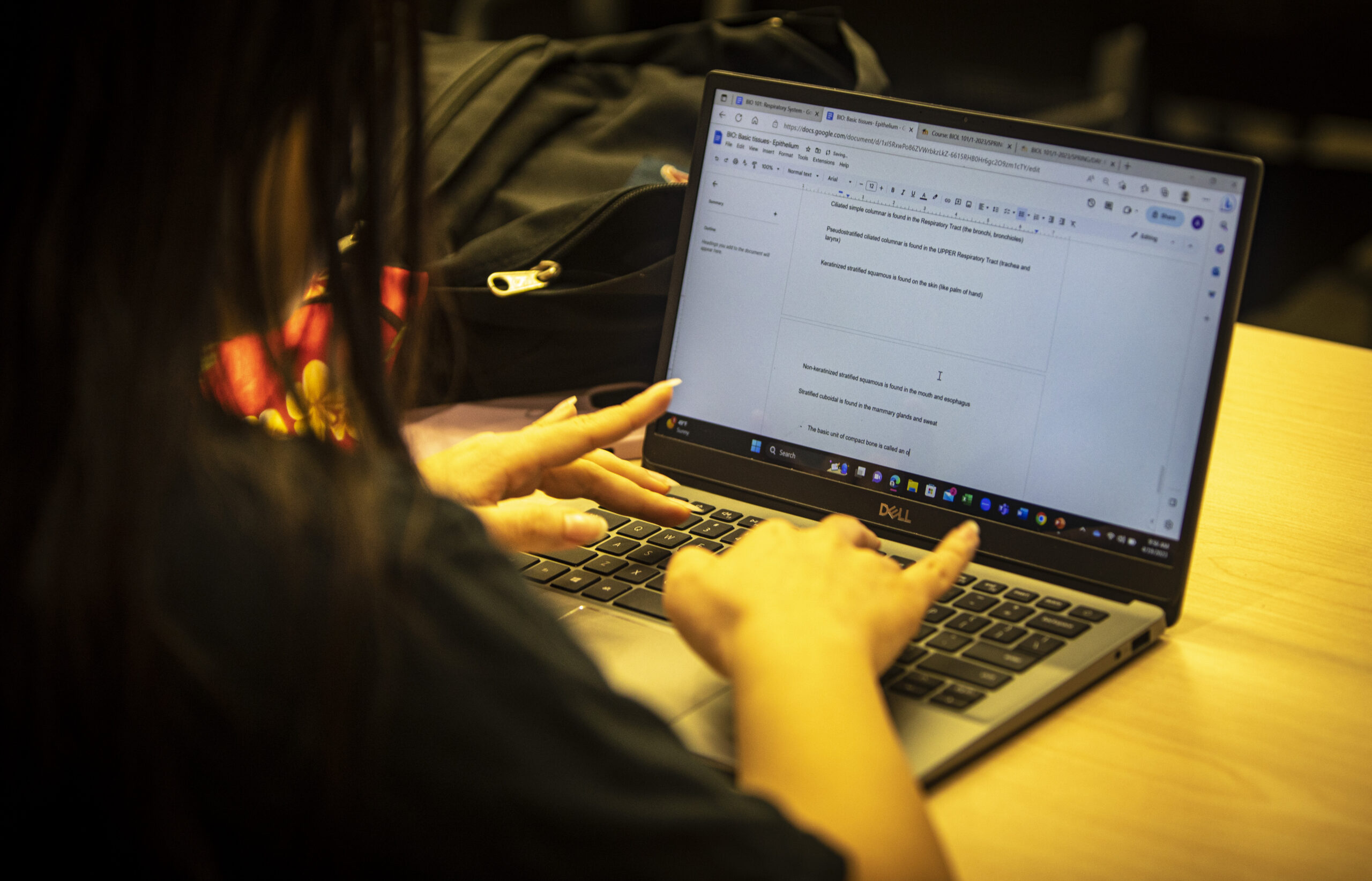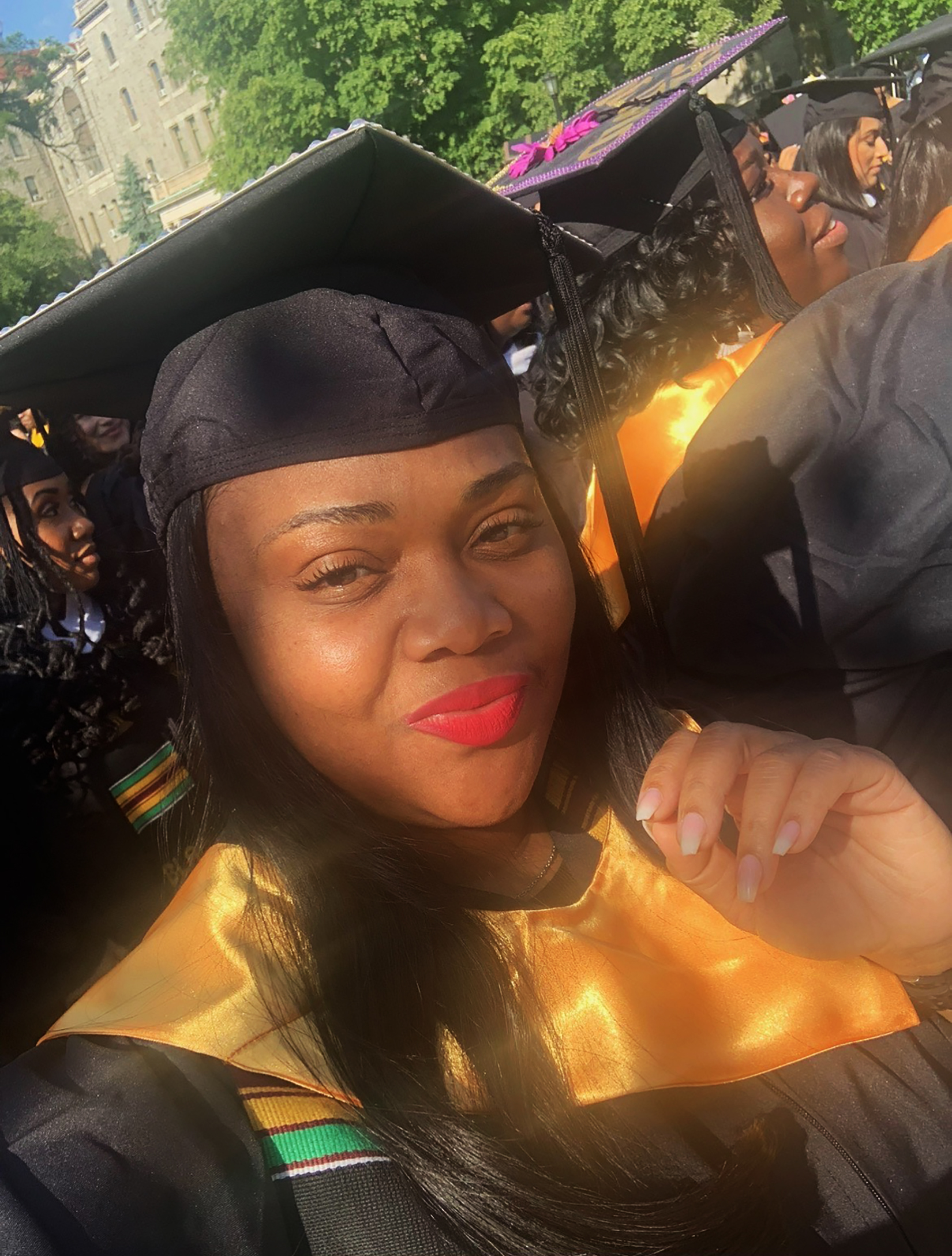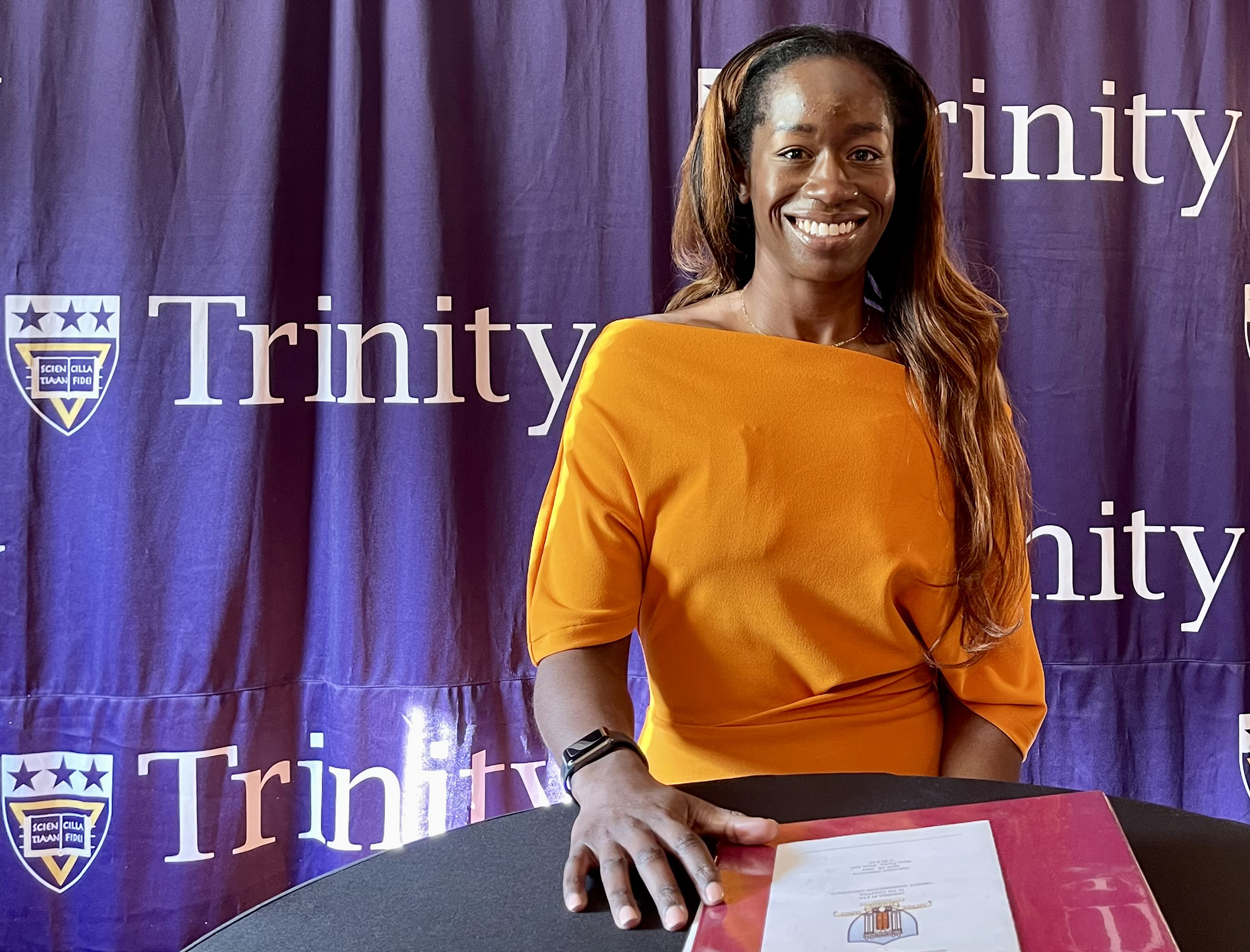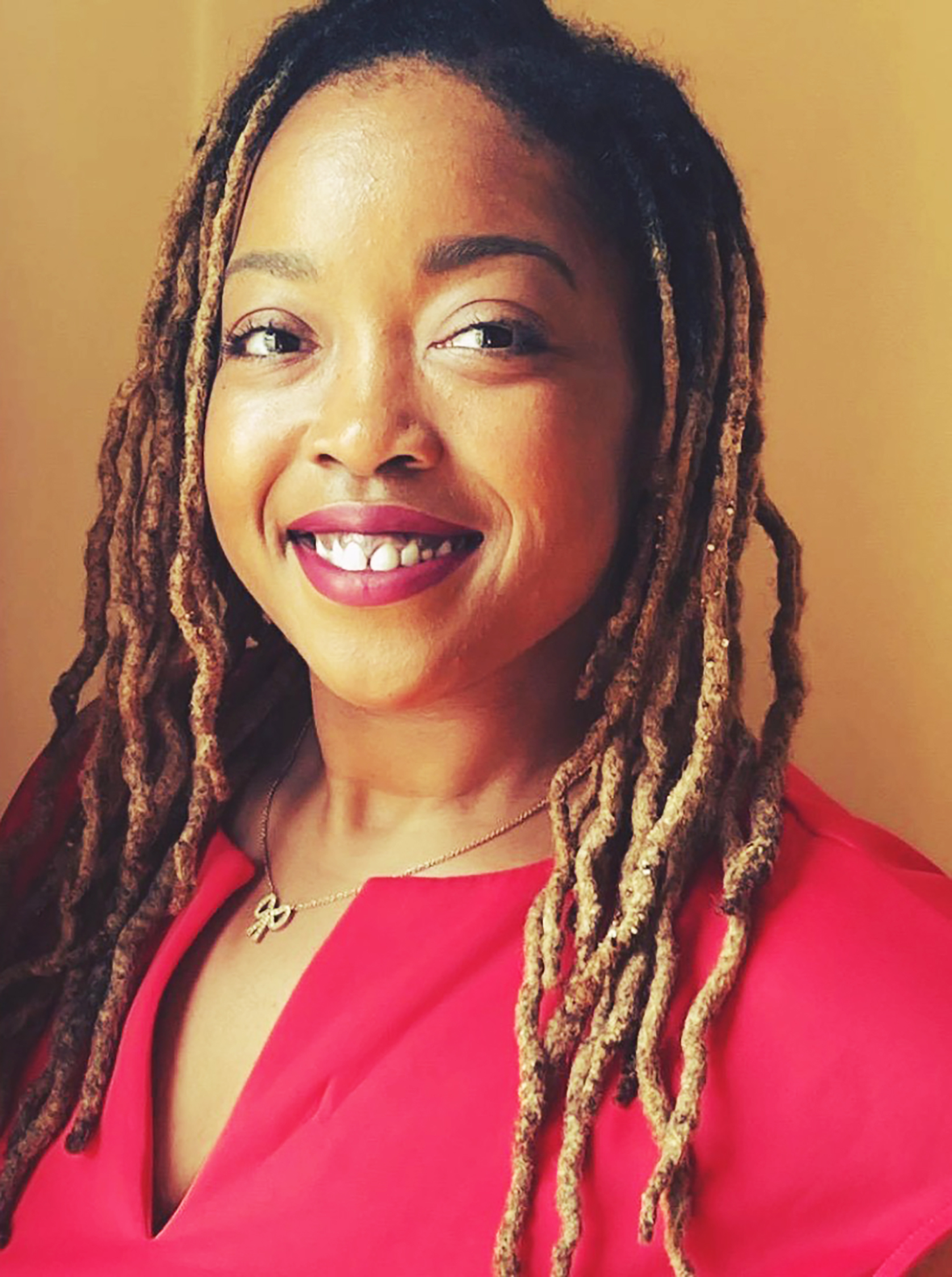
By Sondreen Johnson
Trinity Times Correspondent
As Trinity Washington University senior Nika Phillips looks forward to her projected May 2024 graduation, she looks back at her nontraditional college journey with pride, gratitude, and a touch of annoyance.
Phillips began taking courses at Trinity part time more than a decade ago, discontinued her postsecondary education for several years and returned in earnest in 2019 with a little more life experience.
For most of her return to college she worked, raised her children, and took classes part time, which is what academic researchers refer to as a nontraditional college student.
Trinity officials said they avoid using the terms “traditional” or “nontraditional” when referring to students who attend the university, noting that all of those enrolled have some characteristics that might be considered “nontraditional.”
“Nontraditional students received the bare minimum,” Phillips told Trinity Times. “You can’t make the dean’s list. You can’t be in the honor society. We work just as hard as traditional students, if not harder. A majority of us have to balance parenting, our careers, and our course work. We deserve some credit as well.”

For the few semesters she enrolled in 12 credits, which constitutes full time studies at most universities, and Phillips was indeed awarded dean’s list designations in those semesters.
That just reinforced to her that being a nontraditional student somehow is deemed inferior to the traditional college student when that journey seems that much more challenging.
Trinity officials told Trinity Times they don’t consider part-time students lesser in any way and are continuously exploring ways to address the concerns of students who feel underserved.
Though many nontraditional students experience a sense of inferiority about their educational path, Trinity Professor Lauren Wells has a tremendous amount of respect for her students juggling full-time jobs, family responsibilities and a commitment to their academic pursuits.
“My nontraditional students tend to be very serious and get the job done,” said Wells, who mainly teaches classes in communications and women’s studies. “They do a really good job of being on top of everything.”
Wells teaches both night and day courses at Trinity and has both nontraditional and traditional college students in her classes.
“Most (nontraditional students) don’t have the time to play around,” she said. “However, there are also some traditional students who handle business as well.”
Academic researchers describe traditional students as between the ages of 18 and 24, live on campus, attend classes full time, and are economically dependent on their parents.
In contrast, most studies define nontraditional students by their age, part-time course enrollment, economically responsible for themselves or their families, having dependents other than a spouse, being a single parent, working full time while enrolled in college, or did not receive a high school diploma.
According to the National Center for Education Statistics, nontraditional students constitute more than 38% of the postsecondary population in the United States.
As more nontraditional students enter higher education, researchers note that they encounter numerous institutional, structural, financial, and cultural obstacles.
“Working with nontraditional students tends to be more refreshing,” Wells said. “I’ll bring my nontraditional students’ academic information and they will take that information and then apply it to things that they can relate to.”

Though Wells is aware that most of her nontraditional students have to balance work lives, possibly parenting, and their academics, she doesn’t believe that she is more lenient with them than she is with her traditional students.
“The bottom line is that there’s a formula to success whether you’re a nontraditional student or a traditional student,” she said. “Time management is the main key and prioritizing getting your coursework done.”
Time management was indeed the key for Phillips as she maintained her job at the District of Columbia Department of Parks and Recreation, raised two children as a single mother and successfully completed her coursework at Trinity, expecting to receive her bachelor’s degree in business administration in May.
“Having great time management is a big part of the grand scheme,” she said. “At times, I would be doing my homework while I was at work. I even have a dry eraser board on my bedroom door that I utilize to keep track of when assignments are due.”
Philips used that dry board and put reminders in her phone for due dates of all her assignments, utilized a planner to remain organized, and always printed out the syllabus from her classes.
“I tried my best to remain organized,” she said. “Sundays were always my quiet days and time to breathe. I needed a mental break.”
Attending classes on campus did, however, create a time management obstacle for Phillips and was relieved when Trinity began offering more classes online.
“Without virtual learning, I wouldn’t have been able to earn my degree,” she said, “and the accelerated courses that Trinity offers helped out a lot.”
All in all, Phillips found that traditional students tend to get broader opportunities while they attend college.
A survey from the American Council for Education found that more than 40% of institutions of higher education “did not identify older adult students for purposes of outreach, programs and services, or financial aid.
“Nontraditional student simply do not know or have access to the same resources as traditional students,” said Raushanah Bullock, a student advisor in Trinity’s Center for Student Success.

Traditional college students tend to have generational knowledge that nontraditional students often do not have access to, Bullock said.
“Traditional students have the knowledge of dropping courses before they’re stuck paying for them,” she said. “They know the importance of meeting regularly with their advising or enrollment services team. Traditional students understand the system that is higher education, whereas nontraditional students have a tendency to get lost and fall victim to all of the confusion, even if it is of no fault of their own.”
Nontraditional students often believe they are not being treated equally to their traditional student peers.
“Nontraditional students should have their own student government to represent us and to ensure that we too get recognized for our accomplishments,” Phillips said. “We tend to get the short end of the stick and the sad part is that not too many people advocate for nontraditional students. The facts are the facts. Traditional students receive more academic attention.”
Phillips’ career goals pushed her to pursue her degree and, in the end, she sees herself in a leadership position.
Graduate school may be in her future, but so far that is just a thought. “Continuing education is expensive,” Phillips said. “Period!”
Amazing Article